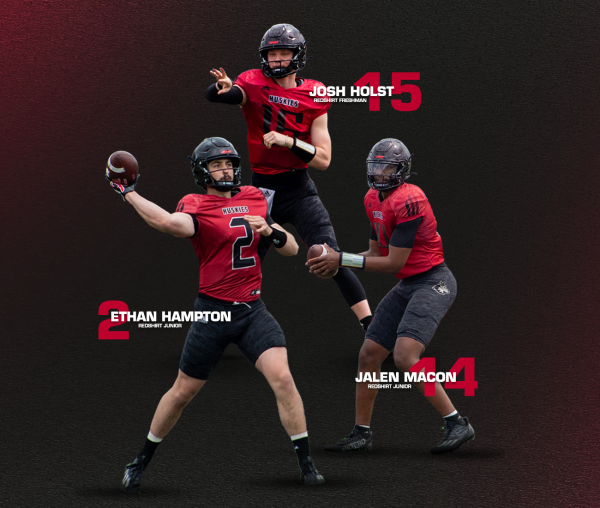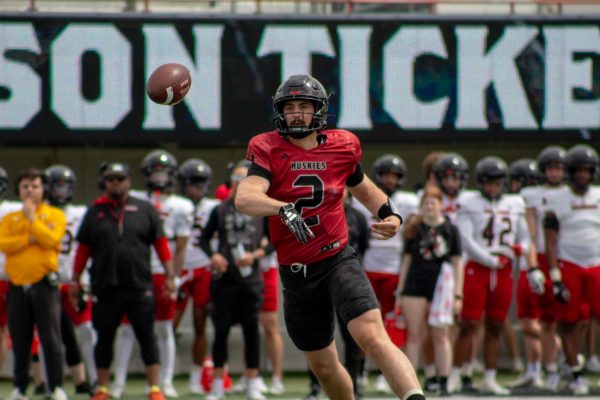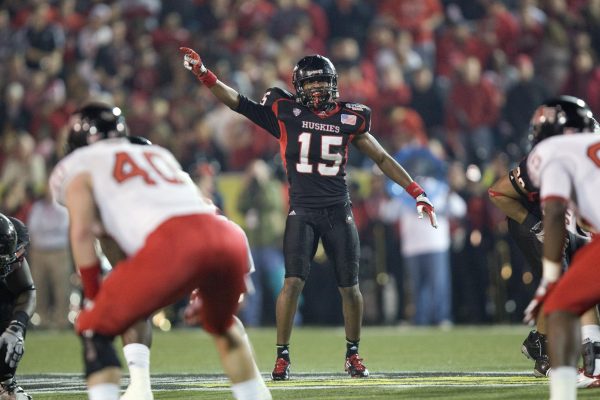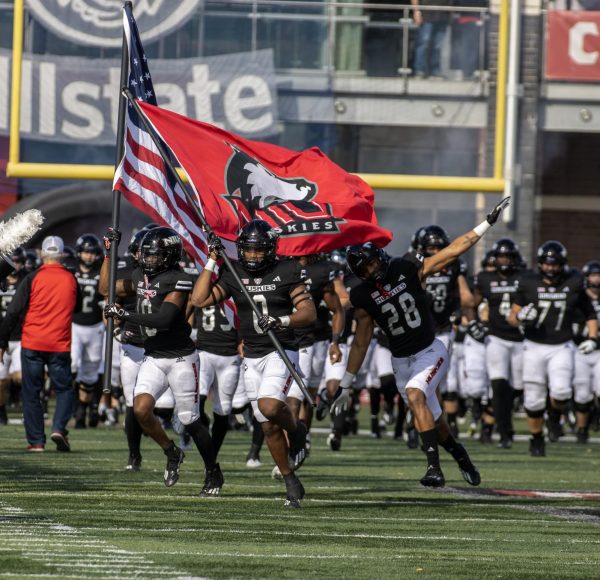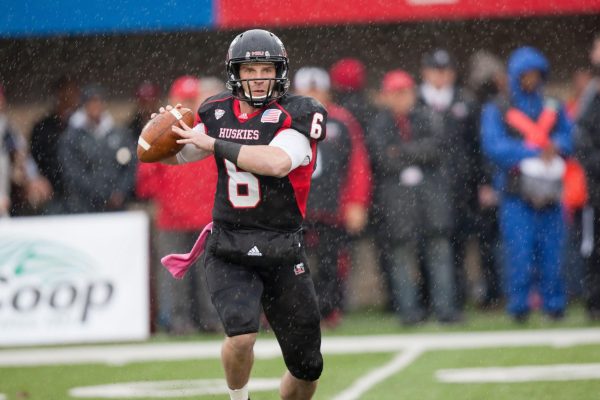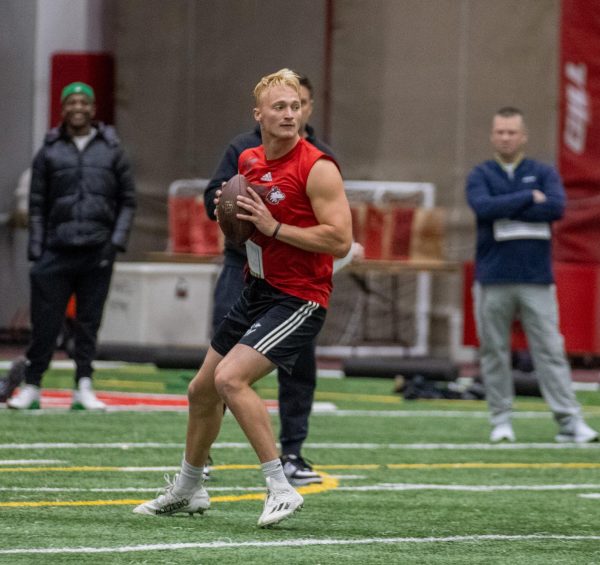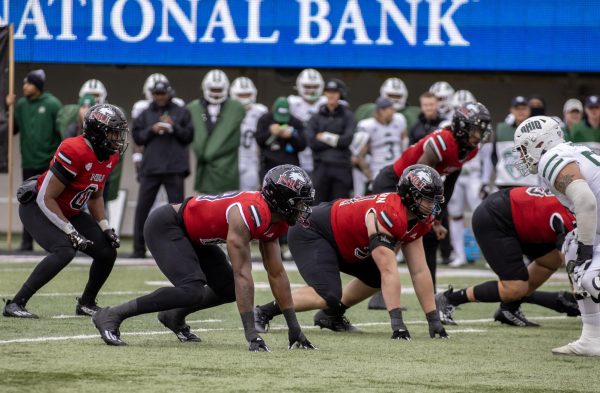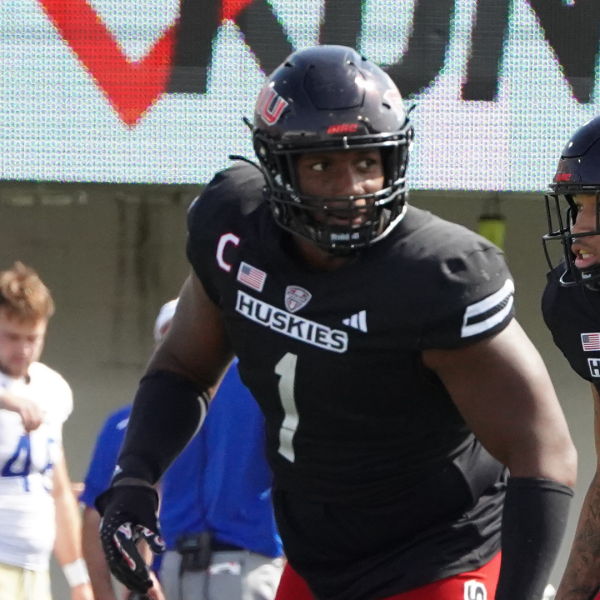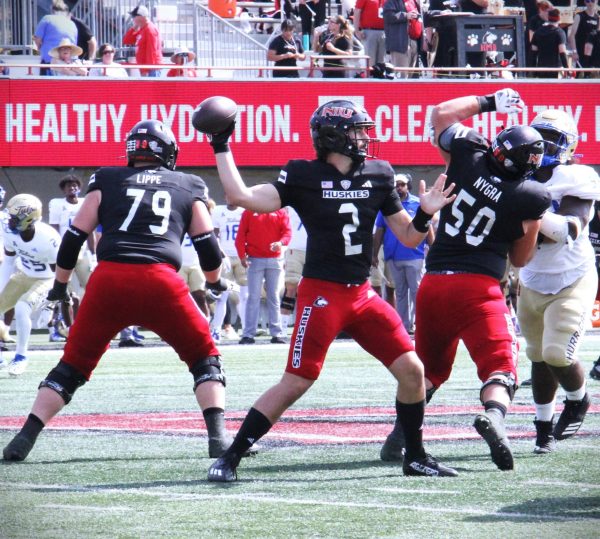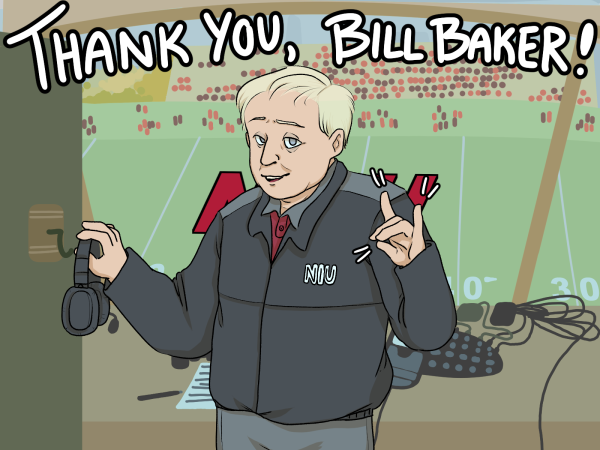NIU athletes battle ‘dumb-jock’ stereotype
March 9, 1988
College athletes must perform in their sport and in the classroom, but sometimes they have the added pressure of battling the “dumb jock” stereotype in the eyes of some faculty.
Elliot Lessen, an associate professor of Learning, Development and Special Education at NIU, became aware of the typecasting when athletes discussed it in his class.
“I think a number of athletes I’ve spoken to feel there is prejudice shown against them by some faculty members,” Lessen said, adding some students prefer their professors not know they are athletes so they can avoid the prejudice.
NIU Academic Counseling Program Coordinator Don Bramlett said he has encountered faculty members he feels have been prejudiced against athletes.
“For the most part, the professors that I’ve worked with have been supportive,” he said. “But I will run into three or four people a year, usually, that have some preconceived idea about athletes not being able to compete academically.
“What I do in those situations is I’ll send out progress cards, and if I get some comments back on them that look like they’re derogatory based on a generalization about athletes, I’ll call the professor and go out and talk to him and try to work out whatever it is. I’ve had to do that a number of times.”
NIU football coach Jerry Pettibone said he has not seen any cases of prejudice against his players in his stay at NIU.
“I’ve been very pleased with the open-mindedness of the faculty here,” he said. “The ones that I’ve dealt with have been very cooperative.
“They’re not penalized for being an athlete. They’re not given anything certainly.”
Lessen said professors exhibit the prejudice by not letting the players reschedule examinations or turn in late homework when the athletes go on an athletic trip. Lessen also said if students have a legitimate reason for not being in class, they should be allowed to make up the work they missed. An athletic trip is a legitimate reason, he said.
Several NIU coaches said priority scheduling for athletes could help limit the amount of classes their team members miss because of roadtrips. This system would allow the athletes to schedule classes they need in times which coincide with their practices and games. Currently, the athletes go through the same scheduling process as the rest of the student body.
“You can massage those schedules all the ways you want—take a night class,” men’s tennis coach Carl Neufeld said. “But there’s always that one lab or something that there’s no way around. The question is (between) making him miss practice, or be late for practice, or forcing him not to take the class and go to summer school.”
Neufeld said it is not “appropriate” for nonscholarship athletes to be forced to take classes in the summer and priority scheduling could help eliminate that.
Softball coach Dee Abrahamson said a priority system “would allow us to put students in classes they could more regularly attend.”
Pettibone said priority scheduling should not be limited to athletes, but should be permitted for any student the university actively recruits.
If priority scheduling were allowed and less athletes were forced to miss classes, prejudice against them—for that reason—could be all but eliminated.
Chicago State’s first-year basketball coach, Tommy Suitts, was one coach who had to deal with a team with a bad academic reputation. When he was hired in August, he learned CSU athletes—basketball players in particular—were stereotyped as poor students. Shortly after being hired, he discovered the stereotypes were justified.
Seven players on his team flunked out before Suitts was able to get them on the court. Those seven had signed up for a combined 193 hours the previous spring semester. Together they dropped 58 of those hours and passed only 94.
“Any high school kid who says academics is his top priority is lying,” Suitts said in reference to prep players he recruits. “There’s no 17- or 18-year-old in America that is going to study before he can go out and play ball.”
With the seven players off the team, Suitts had to scrounge up a few more players—including his team manager—to put a competitive team on the court. He currently has 11 players in the program.
Since taking the job at CSU, getting the players’ academic lives in order has been one of his main priorities.
Suitts has made class attendance mandatory for his players. He said if they cut a class, they must attend a special gym class at 6 a.m. the next morning.
“They usually learn it’s easier to go to class at nine than get up at six and go see coach Suitts,” he said.
Suitts also gave his players one night off a week in the last month of the season to catch up on their studies. He said he would like to see all 11 of his players graduate, but feels he has a realistic shot at getting 10 of them a degree.
“I approach academics like rebounding—it’s a state of mind,” Suitts said. “If you get it on your mind and you want the ball, you can get it. I think academics are the same way.
“In all honesty, we’ve made more progress than I ever thought we could off the court.”



